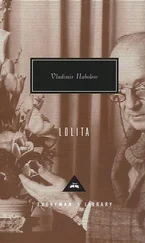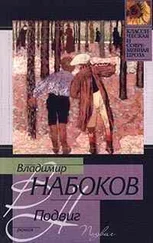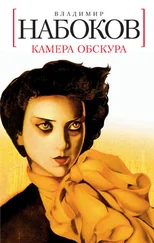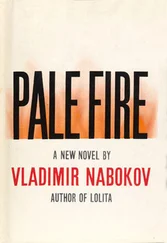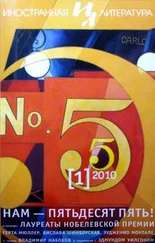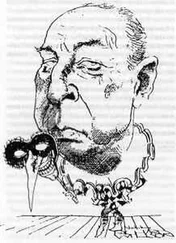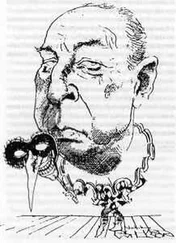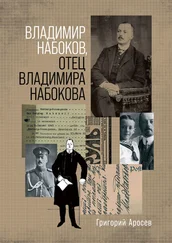Владимир Набоков - Pale Fire
Здесь есть возможность читать онлайн «Владимир Набоков - Pale Fire» весь текст электронной книги совершенно бесплатно (целиком полную версию без сокращений). В некоторых случаях можно слушать аудио, скачать через торрент в формате fb2 и присутствует краткое содержание. Жанр: Классическая проза, на английском языке. Описание произведения, (предисловие) а так же отзывы посетителей доступны на портале библиотеки ЛибКат.
- Название:Pale Fire
- Автор:
- Жанр:
- Год:неизвестен
- ISBN:нет данных
- Рейтинг книги:4 / 5. Голосов: 1
-
Избранное:Добавить в избранное
- Отзывы:
-
Ваша оценка:
- 80
- 1
- 2
- 3
- 4
- 5
Pale Fire: краткое содержание, описание и аннотация
Предлагаем к чтению аннотацию, описание, краткое содержание или предисловие (зависит от того, что написал сам автор книги «Pale Fire»). Если вы не нашли необходимую информацию о книге — напишите в комментариях, мы постараемся отыскать её.
Pale Fire — читать онлайн бесплатно полную книгу (весь текст) целиком
Ниже представлен текст книги, разбитый по страницам. Система сохранения места последней прочитанной страницы, позволяет с удобством читать онлайн бесплатно книгу «Pale Fire», без необходимости каждый раз заново искать на чём Вы остановились. Поставьте закладку, и сможете в любой момент перейти на страницу, на которой закончили чтение.
Интервал:
Закладка:
It was evident he would need a few moments of perfect security to perform with a minimum of noise a succession of small actions: enter the closet, lock it from the inside, remove the shelves, open the secret door, replace the shelves, slip into the yawning darkness, close the secret door and lock it. Say ninety seconds.
He stepped out into the gallery, and the guard, a rather handsome but incredibly stupid Extremist, immediately advanced towards him. "I have a certain urgent desire," said the King. "I want, Hal, to play the piano before going to bed." Hal (if that was his name) led the way to the music room where, as the King knew, Odon kept vigil over the shrouded harp. He was a fox-browed, burly Irishman, with a pink head now covered by the rakish cap of a Russki factory worker. The King sat down at the Bechstein and, as soon as they were left alone, explained briefly the situation while making tinkling notes with one hand: "Never heard of any passage," muttered Odon with the annoyance of a chess player who is shown how he might have saved the game he has lost. Was His Majesty absolutely sure? His Majesty was. Did he suppose it took one out of the Palace? Definitely out of the Palace.
Anyway, Odon had to leave in a few moments, being due to act that night in The Merman, a fine old melodrama which had not been performed, he said, for at least three decades. "I'm quite satisfied with my own melodrama," remarked the King. "Alas," said Odon. Furrowing his forehead, he slowly got into his leathern coat. One could do nothing tonight. If he asked the commandant to be left on duty, it would only provoke suspicion, and the least suspicion might be fatal. Tomorrow he would find some opportunity to inspect that new avenue of escape, if it was that and not a dead end. Would Charlie (His Majesty) promise not to attempt anything until then? "But they are moving closer and closer," said the King alluding to the noise of rapping and ripping that came from the Picture Gallery. "Not really," said Odon, "one inch per hour, maybe two. I must be going now," he added indicating with a twitch of the eyelid the solemn and corpulent guard who was coming to relieve him.
Under the unshakable but quite erroneous belief that the crown jewels were concealed somewhere in the Palace, the new administration had engaged a couple of foreign experts (see note to line 681) to locate them. The good work had been going on for a month. The two Russians, after practically dismantling the Council Chamber and several other rooms of state, had transferred their activities to that part of the gallery where the huge oils of Eystein had fascinated several generations of Zemblan princes and princesses. While unable to catch a likeness, and therefore wisely limiting himself to a conventional style of complimentary portraiture, Eystein showed himself to be a prodigious master of the trompe l'oeil in the depiction of various objects surrounding his dignified dead models and making them look even deader by contrast to the fallen petal or the polished panel that he rendered with such love and skill. But in some of these portraits Eystein had also resorted to a weird form of trickery: among his decorations of wood or wool, gold or velvet, he would insert one which was really made of the material elsewhere imitated by paint. This device which was apparently meant to enhance the effect of his tactile and tonal values had, however, something ignoble about it and disclosed not only an essential flaw in Eystein's talent, but the basic fact that "reality" is neither the subject nor the object of true art which creates its own special reality having nothing to do with the average "reality" perceived by the communal eye. But to return to our technicians whose tapping is approaching the gallery toward the bend where the King and Odon stand ready to part. At this spot hung a portrait representing a former Keeper of the Treasure, decrepit Count Kernel, who was painted with fingers resting lightly on an embossed and emblazoned box whose side facing the spectator consisted of an inset oblong made of real bronze, while upon the shaded top of the box, drawn in perspective, the artist had pictured a plate with the beautifully executed, twin-lobed, brainlike, halved kernel of a walnut.
"They are in for a surprise," murmured Odon in his mother tongue, while in a corner the fat guard was going through some dutiful, rather lonesome, rifle-butt-banging formalities.
The two Soviet professionals could be excused for assuming they would find a real receptacle behind the real metal. At the present moment they were about to decide whether to pry out the plaque or take down the picture; but we can anticipate a little and assure the reader that the receptacle, an oblong hole in the wall, was there all right; it contained nothing, however, except the broken bits of a nutshell.
Somewhere an iron curtain had gone up, baring a painted one, with nymphs and nenuphars. "I shall bring you your flute tomorrow," cried Odon meaningfully in the vernacular, and smiled, and waved, already bemisted, already receding into the remoteness of his Thespian world.
The fat guard led the King back to his room and turned him over to handsome Hal. It was half past nine. The King went to bed. The valet, a moody rascal, brought him his usual milk and cognac nightcap and took away his slippers and dressing gown. The man was practically out of the room when the King commanded him to put out the light, upon which an arm re-entered and a gloved hand found and turned the switch. Distant lightning still throbbed now and then in the window. The King finished his drink in the dark and replaced the empty tumbler on the night table where it knocked with a subdued ring against a steel flashlight prepared by the thoughtful authorities in case electricity failed as it lately did now and then.
He could not sleep. Turning his head he watched the line of light under the door. Presently it was gently opened and his handsome young jailer peeped in. A bizarre little thought danced through the King's mind; but all the youth wanted was to warn his prisoner that he intended to join his companions in the adjacent court, and that the door would be locked until he returned. If, however, the ex-King needed anything, he could call from his window. "How long will you be absent?" asked the King. "Yeg ved ik [I know not]," answered the guard. "Good night, bad boy," said the King.
He waited for the guard's silhouette to enter the light in the courtyard where the other Thuleans welcomed him to their game. Then, in secure darkness, the King rummaged for some clothes on the floor of the closet and pulled on, over his pajamas, what felt like skiing trousers and something that smelled like an old sweater. Further gropings yielded a pair of sneakers and a woolen headgear with flaps. He then went through the actions mentally rehearsed before. As he was removing the second shelf, an object fell with a miniature thud; he guessed what it was and took it with him as a talisman.
He dared not press the button of his torch until properly engulfed, nor could he afford a noisy stumble, and therefore negotiated the eighteen invisible steps in a more or less sitting position like a timid novice bum-scraping down the lichened rocks of Mt. Kron. The dim light he discharged at last was now his dearest companion, Oleg's ghost, the phantom of freedom. He experienced a blend of anguish and exultation, a kind of amorous joy, the like of which he had last known on the day of his coronation, when, as he walked to his throne, a few bars of incredibly rich, deep, plenteous music (whose authorship and physical source he was never able to ascertain) struck his ear, and he inhaled the hair oil of the pretty page who had bent to brush a rose petal off the footstool, and by the light of his torch the King now saw that he was hideously garbed in bright red.
Читать дальшеИнтервал:
Закладка:
Похожие книги на «Pale Fire»
Представляем Вашему вниманию похожие книги на «Pale Fire» списком для выбора. Мы отобрали схожую по названию и смыслу литературу в надежде предоставить читателям больше вариантов отыскать новые, интересные, ещё непрочитанные произведения.
Обсуждение, отзывы о книге «Pale Fire» и просто собственные мнения читателей. Оставьте ваши комментарии, напишите, что Вы думаете о произведении, его смысле или главных героях. Укажите что конкретно понравилось, а что нет, и почему Вы так считаете.

